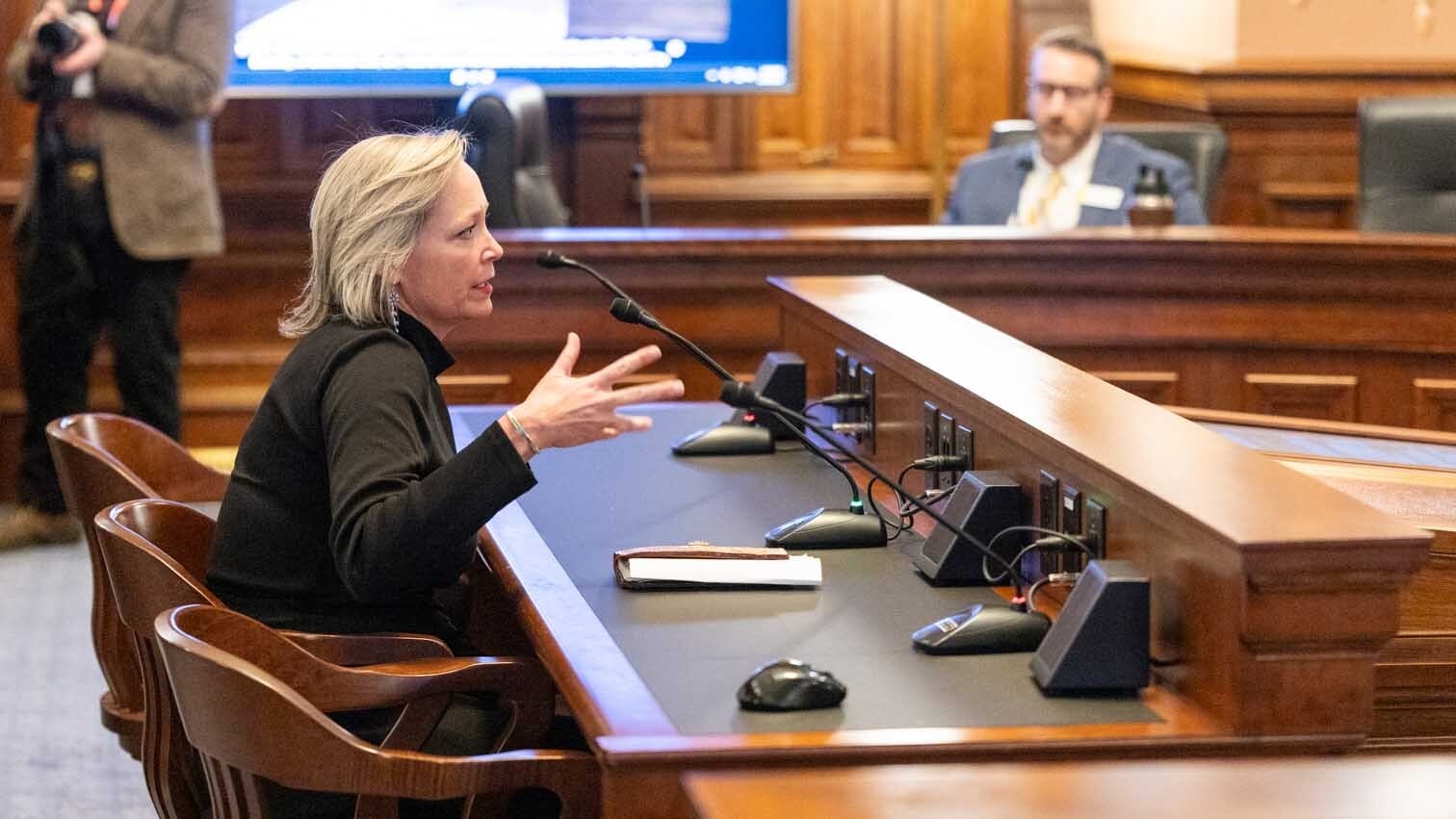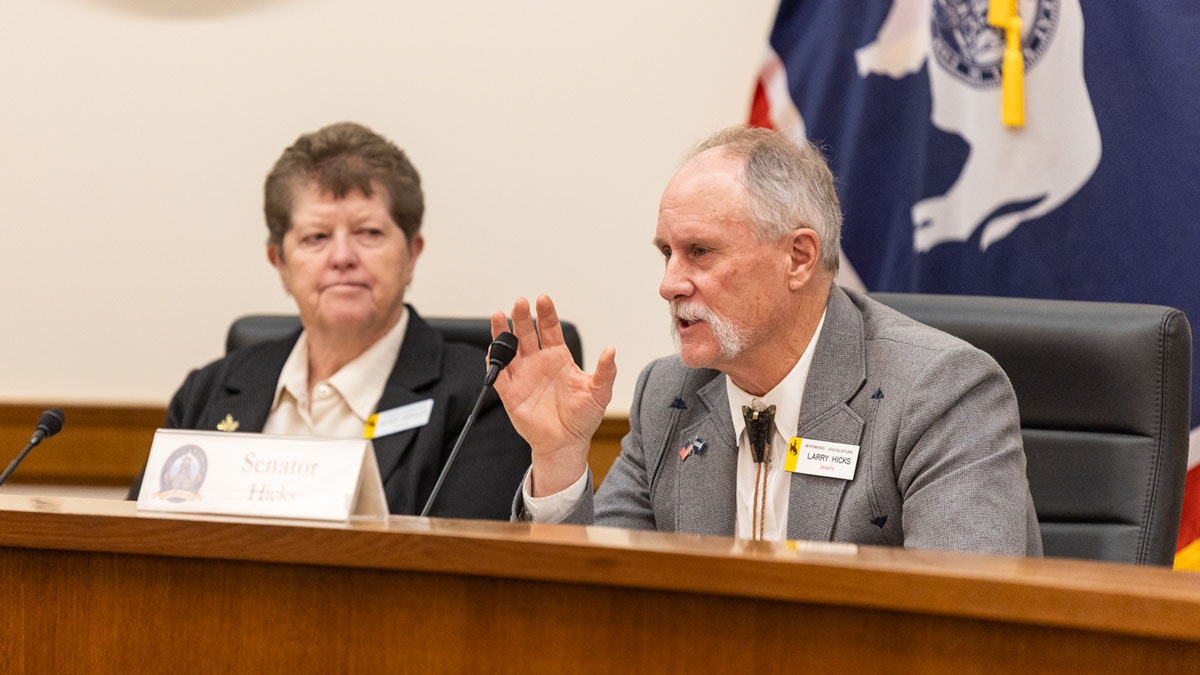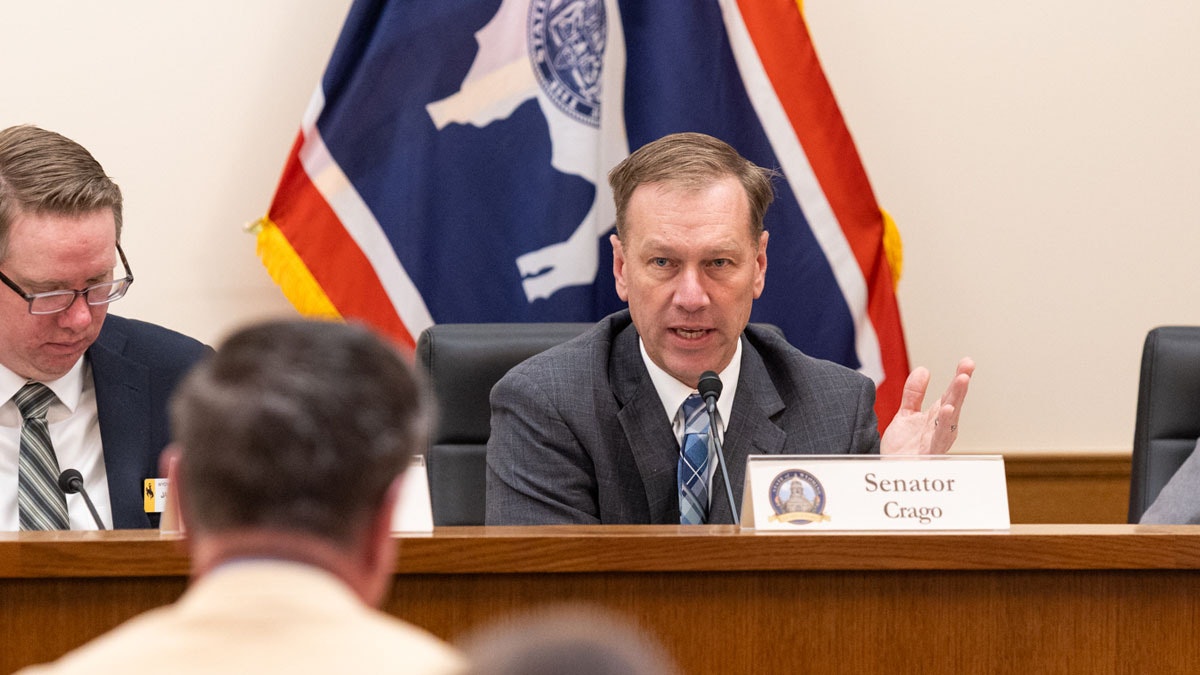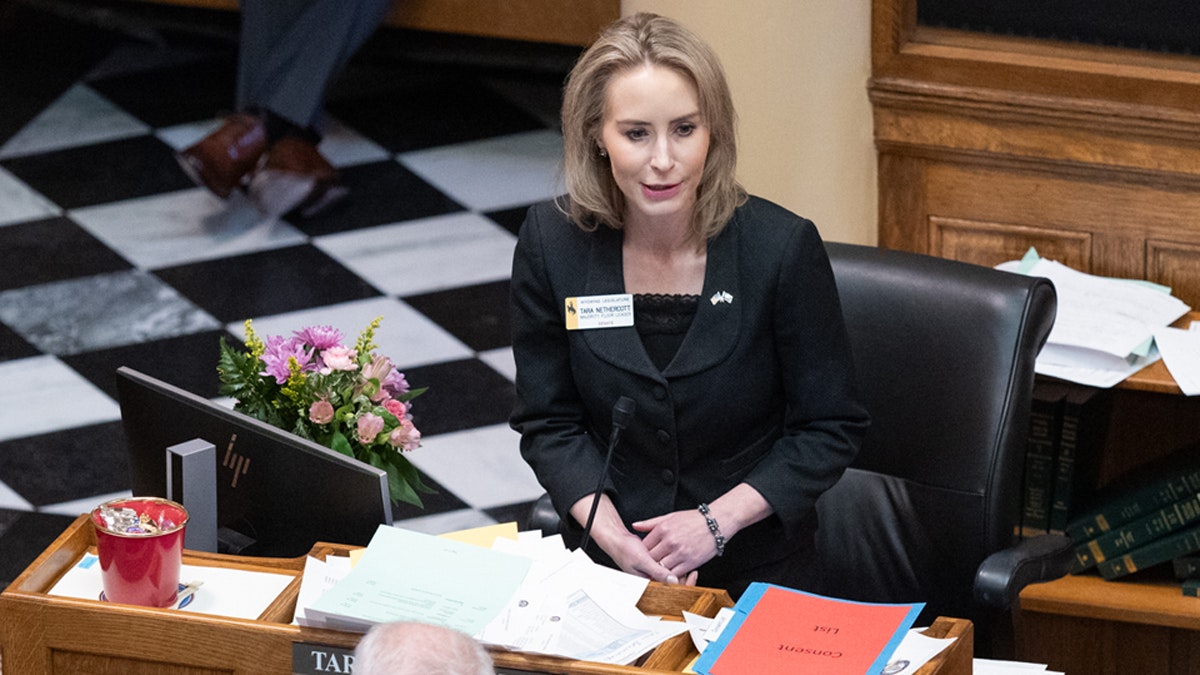The House Labor, Health and Social Services Committee mostly took a strict approach to cutting state-funded diversity, equity and inclusion (DEI) programs Friday, passing a bill on a 7-1 vote that bans these efforts.
The bill sponsor, state Sen. Cheri Steinmetz, R-Lingle, said she first started discovering DEI standards and coursework at the University of Wyoming about four or five years ago when working with the school’s board of trustees on their budget.
“Thus, the genesis of this bill,” she said. “It’s been a long time in coming.”
UW And DEI
Last year, the university became a target for the Legislature, which stripped the school of funding for its DEI office and programming. Although Gov. Mark Gordon partially vetoed the Legislature, the school still followed through with eliminating most of its DEI activities.
Because of that, Steinmetz’s bill is unnecessary, said Mike Smith, vice president of governmental affairs and community engagement for UW. He also said it’s overly broad and poorly constructed.
“We’ve made great progress in that regard,” Smith said. “There’s been nothing but doing the hard work to try and implement that law and many of the provisions of this bill have been implemented already.”
Steinmetz noted how classes like “Issues in Multicultural Education,” which aim to teach about racism and cultural biases for the goal of a more just education, are required for certain master’s degrees at UW.
Steinmetz said with President Donald Trump’s election, it’s a “great time as a state to be working on this.”
Trump has worked to root out DEI from all levels of the federal government, threatening to pull funding from public schools that hold onto these policies.
State Rep. Mike Yin, D-Jackson, was the only member of the committee to vote against Senate File 103.
“We just passed a bill that says compelled speech isn’t free speech, but this is a bill that does the opposite,” Yin said. “This is us compelling the government, our government employees, our board of trustees, our community colleges, the university of Wyoming, to only say certain things. This is a censorship bill.”
What It Does
As it stands, SF 103 would not only ban governmental agencies from employing DEI programs, but also would prohibit publicly funded agencies like UW and Wyoming’s community colleges from accepting money from private donors that dictate their donations be spent toward DEI efforts.
As currently written, the bill would likely prohibit schools from offering race or gender-based scholarships, such as tuition money for Hispanic students or women.
Whether or not outside foundations working on behalf of UW and the community colleges could provide these scholarships is still unclear, said Erin Taylor, executive director of the Wyoming Association of Community College Trustees.
Also likely prohibited are race-based functions, such as the university hosting an event specifically for Latina or Black students. Last summer, UW canceled its Black 14 Social Justice Summer Institute when members of the Black 14 chose not to participate.
Rep. Rachel Rodriguez-Williams, R-Cody, chairman of the Wyoming Freedom Caucus, went even further with this concept, asking Steinmetz if schools should be allowed to let groups use their facilities for DEI activities. Steinmetz responded that she wouldn’t want to infringe on the right to free speech on campus.
Nathan Winters, a former state legislator and president of the conservative education group Wyoming Family Alliance, mentioned how there is a required social justice course within UW’s nursing program. He believes DEI represents Marxist ideologies.
Sara Burlingame, another former legislator and executive director of LGBTQ advocacy group Wyoming Equality, said the Wyoming National Guard held a diversity event where a brigadier general said diversity has benefited unity among guardsmen.
Although she doesn’t believe SF 103 would prevent the teaching of events like slavery, Indian removal from lands and the Holocaust, she does believe it would prevent teaching about why they happened.
“It’s chilling to imagine that a freedom-loving people like we are could turn so quickly against our neighbors in service of what I am very sorry to say sounds like a white nationalist agenda,” she said.
Exemptions Given
The committee created a few exemptions Friday for nonprofits that receive state money or grants. As originally written, SF 103 would have prevented these groups from receiving public money and pursuing DEI efforts.
Shawn Reese, executive director of the nonprofit Wyoming Humanities, warned this could prevent his group from teaching about historical events like the Rock Springs Massacre and the immigration of Jewish and other groups of people to Wyoming.
“These are compelling stories of Wyoming’s history,” he said.
The committee passed an amendment brought by Yin on a 7-1 vote to limit the DEI ban to governmental agencies. Rep. Darin McCann, R-Rock Springs, was the only member to vote against it.
Other amendments brought by Yin and Rep. Ken Clouston, R-Gillette, to allow state-funded institutions to pursue DEI initiatives if their donors request it were rejected by the committee.
The bill does provide exemptions for standards that are reasonably necessary for a school to operate, submitting documents to qualify for a grant or accreditation, providing support services, trainings, or activities intended to familiarize students, faculty and staff with the Eastern Shoshone, Northern Arapaho, or other federally recognized Indian tribes.
The committee also changed language originally written in the bill that an agency may not engage in “promoting policies or procedures designed or implemented in reference to race, color or ethnicity.” This was softened to say agencies may not promote policies “in deference” to race, color or ethnicity.
Leo Wolfson can be reached at leo@cowboystatedaily.com.










